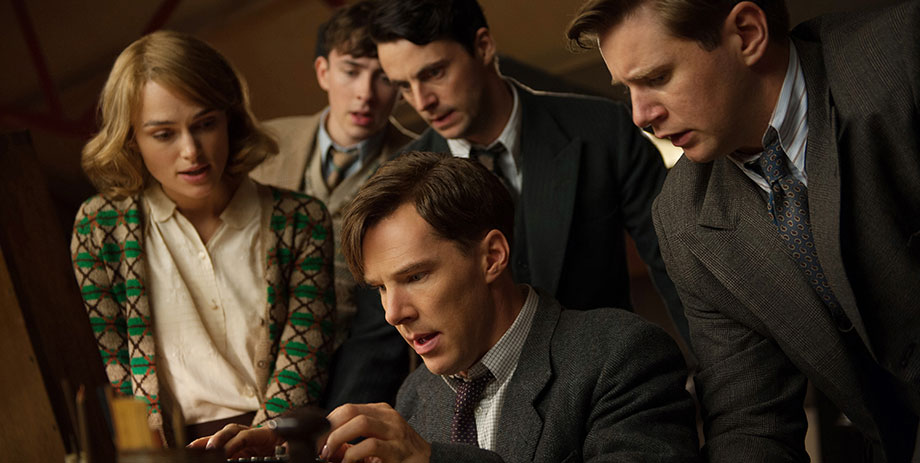Based on the true story of Alan Turing, a British mathematician, logician and cryptanalyst, the movie is a must-see production. Turing had a key role in the development of computer science and fathered the Turing machine, the first form of computer ever created. During the Second Word War he worked at Bletchely Park to help break Enigma, the Nazi code used to give naval instructions on a daily basis. Without going into many technical details, the movie shows how Turing worked day and night to build a huge device with hundreds of discs and nobs to decode the correct combinations of numbers and letters behind the encrypted code.
The story starts in 1951 Manchester when a suspicious robbery takes place at Turing’s house and then develops around three main time frames: the school years, the period spent working at Bletchey Park and the early 1950s, when Turing is persecuted for homosexuality. Benedict Cumberbatch portrays very well the mathematician and the complexities of his character; at times, Turing, who was the object of bullying during his school years, appears more similar to his machine than to a real person. He is rude and speaks to people in a patronising way; he struggles to communicate with his colleagues at Betchley and, especially in the beginning, he considers himself too highly to bother to listen to other people. Only when he meets Joan Clarke – played by a very convincing Keira Knightley – he seems to become more ‘human’. His character slightly softens and he opens up towards the external world.
Throughout his life, his homosexuality deeply affects all the relationships he has; he knows that this secret wouldn’t be safe with anybody and so he uses his work and his passion for running to hide away from any social interaction with the surrounding world. Turing tries hard to be ‘normal’ and, at one point, he even proposes marriage to Joan in an attempt to avoid society prejudice. Despite all his valuable work for the country during the war, when the police finds out about his homosexuality, he is condemned for indecency and has to take medications ‘to be cured from his illness’. Shortly after, Turing commits suicide and , only recently, his reputation is restored thanks to a posthumous pardon issued by the Queen last year.
The movie alternates moments of laughter to sadder scenes; the audience feel engaged in the code-breaking mission and somewhere, halfway through the movie, start to grow fonder with Turing. Despite all his eccentricities, one can see his vulnerability and his need to feel accepted; by the end of the movie, Turing shows that he is capable of things that people wouldn’t have imagined. It is not about being normal – what does that even mean? – but it is about being ourselves; and as it’s said throughout the film ‘sometimes it is the people who no one imagines anything of, who do the things that no one can imagine.’

Be the first to comment on "Review – Imitation Game: A Tribute To Being Different"